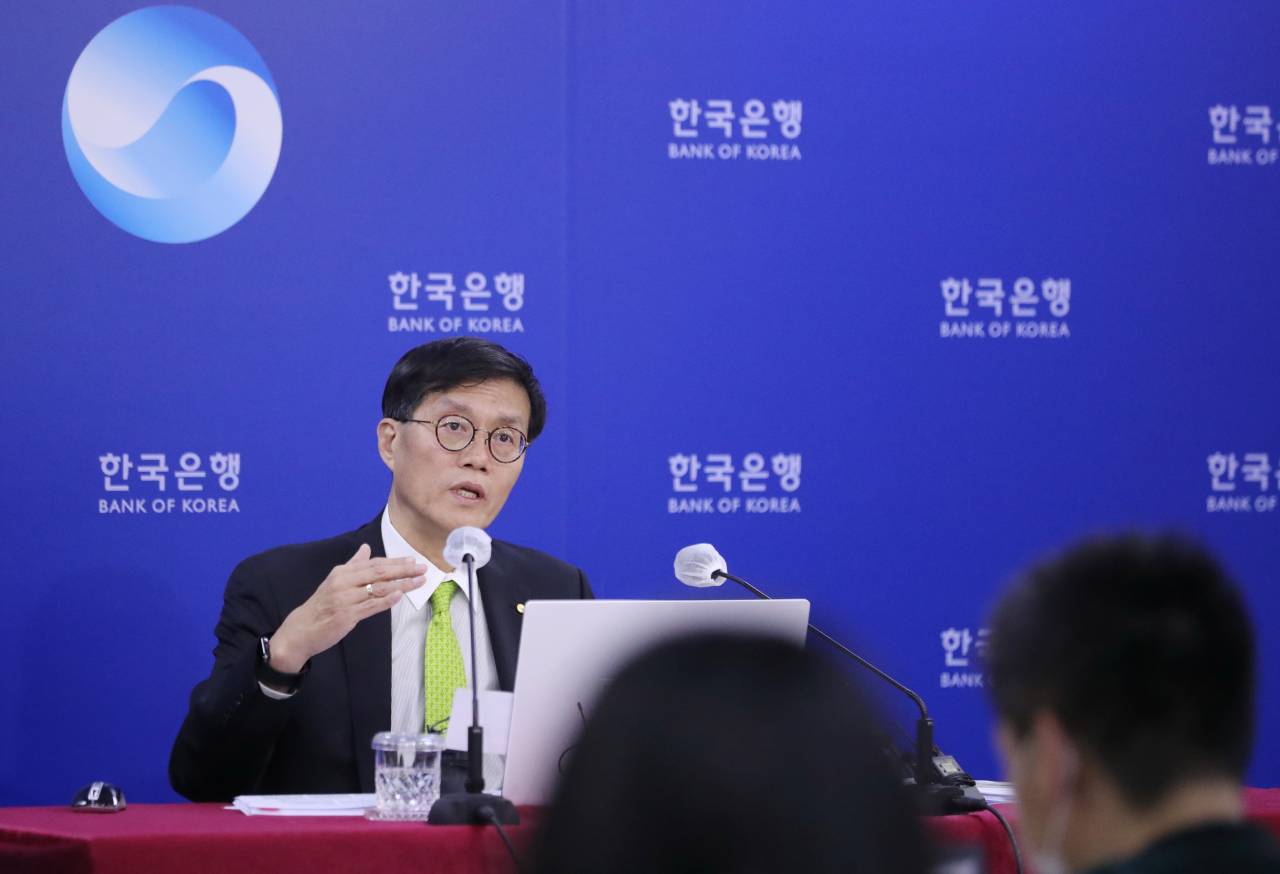 |
Bank of Korea Gov. Rhee Chang-yong answers reporters' questions during a briefing on the outcomes of a Monetary Policy Committee meeting at the central bank in Seoul last Thursday. The bank raised its key interest rate by a quarter percentage point to 1.75 percent to control inflation caused by global supply chain disruptions and the Ukraine war. (Yonhap) |
Central banks need to do more than their obligation of maintaining price stability as calls for them taking more social responsibility will continue to rise in the post-pandemic era, Seoul's top central banker said Thursday.
At an international conference in Seoul, Rhee Chang-yong, head of the Bank of Korea (BOK), said South Korea and other emerging countries are facing a likelihood of returning to a "very low inflation" and "very low growth environment" after current high inflation cools off, due to their "rapid aging problem."
"Calls for the social responsibility of central banks are also likely to continue. This is because the shock from the pandemic and the subsequent recovery turned out to be uneven across income groups and industrial sectors," Rhee told the conference held to discuss central banks' role.
"Given the negative perception of the unconventional monetary policy tools mobilized by central banks over the past 10-plus years and the consequent rise in asset prices, there are growing voices calling on central banks to fulfill their social responsibility by cleaning up the mess they might have created," he added.
Rhee said he is not certain about what trajectory the global economy will take in the post-pandemic era after many countries have injected a huge sum of liquidity with expansionary fiscal and loose monetary policies for years.
But he worried that advanced countries and other emerging countries, including South Korea, could return to low inflation and growth trends going forward due to their aging population problem, saying that central banks in those economies cannot afford to use the same set of tools mobilized as before.
"I think the chance of returning to a very low inflation and low growth environment again is significant for advanced economies and some emerging market economies, at least for Korea, Thailand and maybe China considering their rapid aging problem," he said.
"To escape a low growth, low inflation trap, should emerging market economies or Korea for that matter follow the same advice professor Paul Krugman gave to central bankers in advanced economies, to 'credibly promise to be irresponsible?'" he added.
The BOK chief said that many emerging countries have avoided serious currency depreciation or excessive capital outflows despite their expansionary fiscal and ease monetary policy steps as those moves were taken not just by them but also by many advanced economies that have taken even such unconventional policy tools as asset purchases.
He, however, doubted whether the same result will come out if emerging markets alone face protracted low growth rates.
"A similar magnitude of expansionary fiscal and monetary policies in emerging market economies as seen in the last few years in coping with COVID-19 would, in the absence of massive global liquidity, have different implications for exchange rates, capital flows and inflation expectations," he said.
"What effective emerging market economies' specific unconventional polices could be designed for their own periods of low inflation and low growth is still an open question, and this will be my homework to get prepared for the future," he added. (Yonhap)







